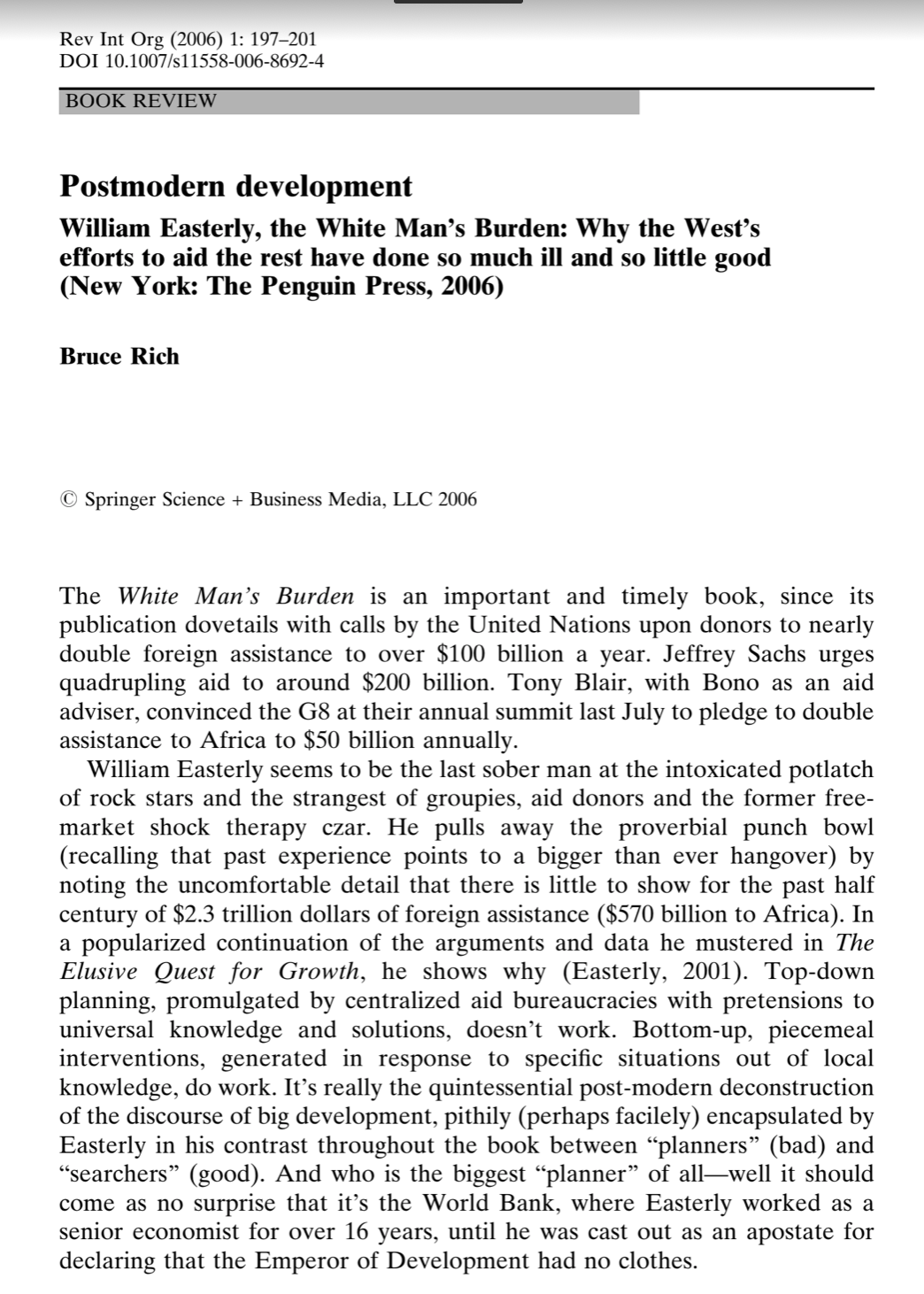- Bruce Rich
- Review of International Organizations, Vol. 1, Issue 2.
- June 2006
- pp. 197-210
William Easterly seems to be the last sober man at the intoxicated potlatch of rock stars and the strangest of groupies, aid donors and the former freemarket shock therapy czar, Jeffrey Sachs. He pulls away the proverbial punch bowl (recalling that past experience points to a bigger than ever hangover) by noting the uncomfortable detail that there is little to show for the past half century of $2.3 trillion dollars of foreign assistance ($570 billion to Africa)....Top-down planning, promulgated by centralized aid bureaucracies with pretensions to universal knowledge and solutions, doesn’t work. Bottom-up, piecemeal interventions, generated in response to specific situations out of local knowledge, do work....The White Man’s Burden is anchored in a debate going back to the beginning of the Modern Age.... The humanist skepticism of the Sixteenth Century doubted there were any general truths or certainties. The Cartesian reductionist rationalism of the subsequent century sought absolute certainty in the abstract and universal, as opposed to the specific, the concrete, the local, and the contingent....That perhaps is the underlying dilemma confronting institutions today, in an era where both rationalistic economic fundamentalism and religious obscurantism are overshadowing the humanistic modesty and respect for local knowledge and local solutions whose urgency Easterly so cogently underscores.



